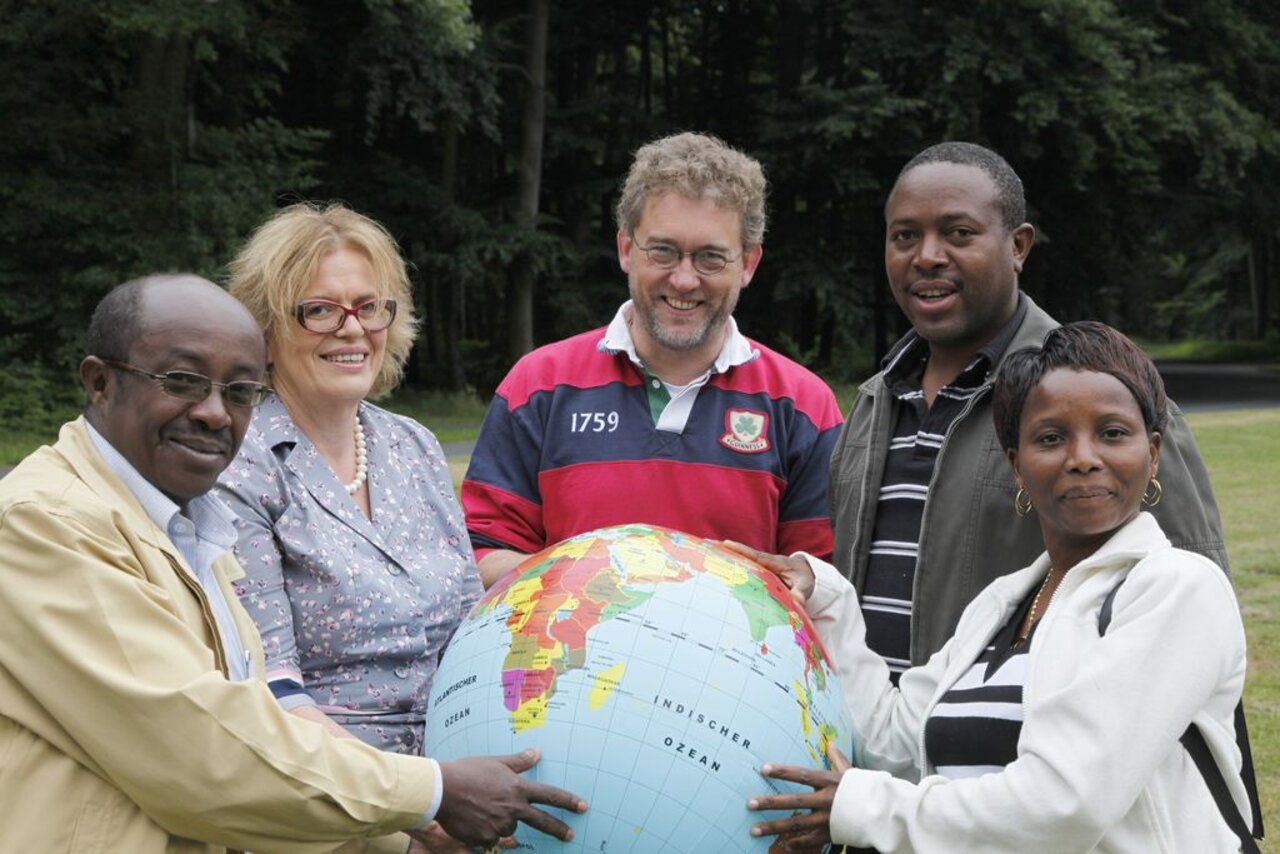Project
Capacity Building towards Food Security

Food security exists when all people at all times have access to sufficient and nutritious food to ensure an active and healthy life. At present, for a large proportion of the world population this is not the case. Even though the number of people suffering hunger has been reduced to the half since 1995, still there are more than 2 Billion people worldwide suffering from micronutrient deficiencies. Most of these people live in developing countries.
Background and Objective
To improve food security, in particular in the world most affected regions such as sub-Saharan African countries and in some countries in Southeast Asia, together with socio-economic, organizational and structural improvements, there is still required some progress towards the sustainable use of the agricultural resources. In addition, a rising issue is whether and which possibilities exist for policymakers to reduce the current micronutrient deficiencies in these countries. Alongside with a sufficient and nutritious well-balanced food supply there is also required to support a sustainable economic development in order to improve substantially the financial income situation, particularly for the most affected marginalised and indigenous population groups.
The objective of this project is to share some tools with our cooperation partners from some sub-Saharan countries such as general and partial equilibrium models. These tools provide a framework to analyse the status quo of food security in their home countries and to develop strategies to improve in a sustainable manner the current food security situation. Key elements of this project are methodology and knowledge transfer with colleagues from our partner countries. Establishing a Scientific based Policy Advice Network with local partners should be the outcome of these co-operations.
Target Group
African, Asean scientists, scientists from other developing countries, policymakers, etc.
Approach
1. Knowledge exchange, analysis and information sharing platform
An exchange platform will be established with researchers from African and other developing countries. An objective of this project is to screen existing data as well as a discussion on the use of various methodical modeling approaches and their data requirements. This discussion platform will build upon regional networks, online discussions as mechanisms to promote information sharing, knowledge exchange.
2. Introduction in the modeling work and strengthening their expertise
Based on the above mentioned procedure a group of local researchers from different sub Saharan African countries will be trained as modelers on food security issues and further they can serve as competent advisors to policy makers. This so grown policy modeler network will be strengthen technically as well as personally in workshops. The participants will acquire deep knowledge on how to use, handle and maintain a country model in the framework of AGMEMOD (Agricultural Member State Modelling). Furthermore, the local and country specific knowledge of our African partners will help us to jointly adopt the model structure to their needs.
Involved Thünen-Partners
Duration
9.2014 - 12.2022

![[Translate to English:] [Translate to English:]](/media/_processed_/3/e/csm_AdobeStock_249730128_92f14d3a63.jpeg)
![[Translate to English:] [Translate to English:]](/media/_processed_/3/e/csm_AdobeStock_249730128_a6fcf4c893.jpeg)






